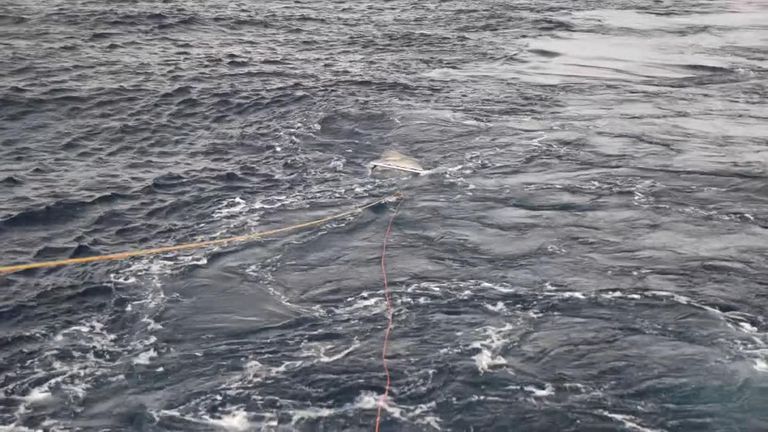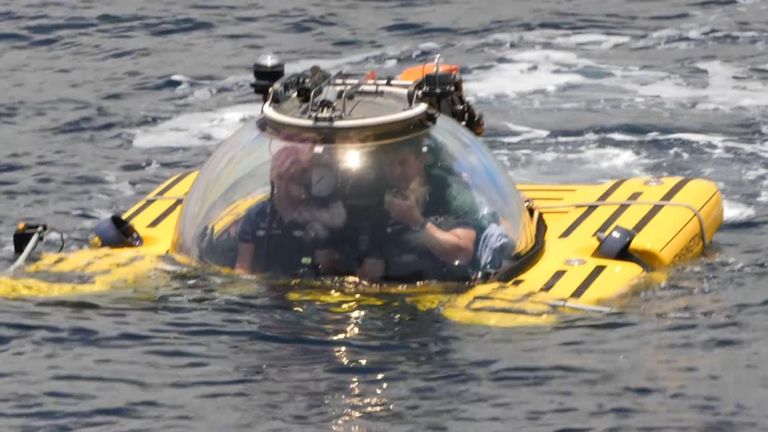Home » World News »
Quest to find rare marine life in the deep ocean begins
Scientists have begun work cataloguing the marine life of the remote atolls of the Seychelles.
Marine biologists on the Nekton mission are taking samples from the surface down to a depth of 500m.
Sky News is filming the team and next week will broadcast a pioneering series of programmes – Deep Ocean Live – from 300m below the waves.
Researchers are dragging nets along the surface to gather tiny crustaceans, larvae and juvenile fish.
Other collection methods are more opportunistic. An underwater camera was retrieved with dozens of squid and octopuses clinging to the housing.
Louise Allcock, an expert on octopuses who is a marine scientist at the National University of Ireland Galway, was delighted to have them on board the mission’s mothership.
She said: “They are fascinating creatures.
“They have mini brains at the end of their arms, so (each one) can act autonomously.
“They are the only really intelligent creatures really different from us.”
The Nekton scientists are also using manned submersibles and remotely operated subs to look for evidence of a rariphotic zone (rare light zone) in the Indian Ocean.
It’s a unique ecosystem between roughly 130m and 300m deep already identified in the Caribbean that may contain unique species.
But it is in danger of being exploited by industrial fishing fleets.
Lucy Woodall, the principle scientist on the mission, said: “Are the animals that live there the same as above or below it, or are they completely different?
“Until we know, we don’t how to manage that area and therefore we can’t look after it for the future.”
:: Sky News will broadcast live from 300m down in the Indian Ocean on 18, 19 and 20 March. The series will examine the impact of climate change and plastic pollution. It includes the deepest-ever live news programme from submersibles.
:: Sky’s Ocean Rescue campaign encourages people to reduce their single-use plastics. You can find out more about the campaign and how to get involved at www.skyoceanrescue.com.
Source: Read Full Article




